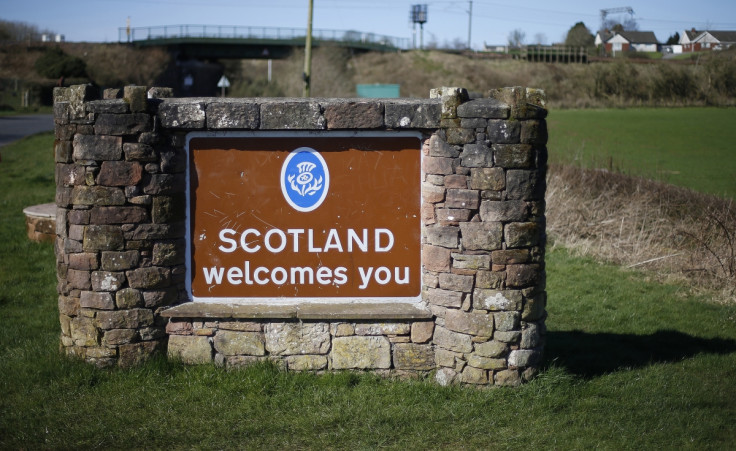Scottish Independence: SCC Urges Government to 'Listen' to Non Voter Business Fears

The Scottish Chambers of Commerce has urged lawmakers to analyse the attitudes of businesses across England, Wales and Northern Ireland regarding the impact of Scottish independence. Despite not having a vote, their views could significantly shape the outcome.
The SCC said in a statement, in response to a British Chambers of Commerce survey, that the potential impact from the lack of a currency union is still riding high among businesses' list of concerns.
"It comes as little surprise that businesses in the rest of the UK are less affected by the independence debate than those here in Scotland, but it is clear that awareness levels are rising sharply as the referendum approaches and businesses in Scotland's largest export market are developing their reactions to the debate we are having in Scotland," said Liz Cameron, Chief Executive of the SCC.
"While those south of the border may not have a vote, their attitudes will be key to what happens after the referendum, whether or not Scotland chooses the path of independence. The attitudes of businesses in the rest of the UK to such issues as a shared currency with an independent Scotland would be vital to independence negotiations."
Scottish people will vote in an independence referendum on 18 September this year and will be asked the straight "yes/no" question: "Should Scotland be an independent country?"
The referendum period starts on 30 May.
What British Businesses Want
The BCC survey revealed that a whopping 85% of businesses outside of Scotland want the country to remain part of the UK.
The report, which surveyed 2,400 Chamber members in England, Wales and Northern Ireland, also revealed that only 11% of firms said that Scotland should become an independent country.
The survey also revealed that a third of firms outside of Scotland would like a formal currency union between the UK and Scotland if the country votes for independence.

More than a quarter also said Scotland should create its own currency if it votes for independence, 18% said it should join the Euro and 8% said it should retain Sterling but not join a formal currency union.
"In this respect, it is very interesting that the most commonly expressed preference of businesses in the rest of the UK, like Scotland, is for a formal currency union," said Cameron, on the BCC report.
"Equally English, Welsh and Northern Irish attitudes to further devolution and the Barnett Formula would be crucial to defining the governance of Scotland if the vote is 'no'. There is a clear contrast between the strong mood for change and more powers in Scotland and the demands for a review of Scotland's funding settlement coming from south of the border.
"Whatever Scotland decides, the economic reality is that some two thirds of our exports currently go to the rest of the UK. It is, and will remain, a critical market and partner for Scotland whatever the outcome of the referendum.
"Therefore the views of business people elsewhere on these islands matter. Even if they do not have a vote in September, their influence both politically and economically in the wake of the referendum will play a part in shaping Scotland's future. We would all do well to listen to what they have to say."
© Copyright IBTimes 2025. All rights reserved.






















